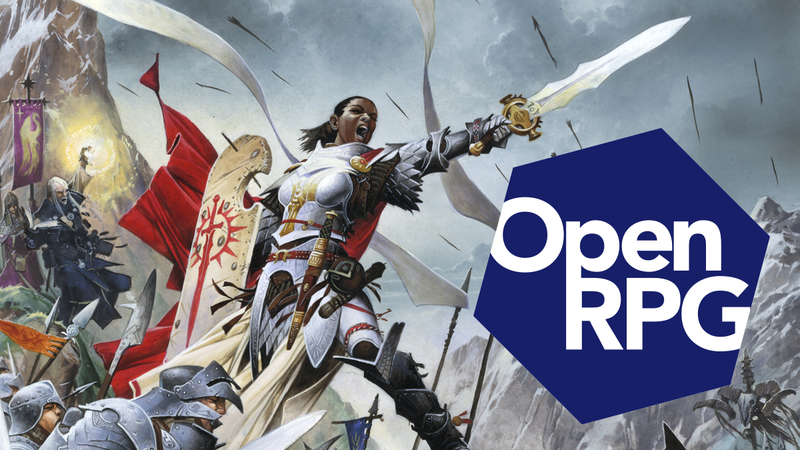
Over the course of the last week, more than 1,500 tabletop RPG publishers, from household names going back to the dawn of the hobby to single proprietors just starting out with their first digital release, have joined together to pledge their support for the development of a universal system-neutral open license that provides a legal “safe harbor” for sharing rules mechanics and encourages innovation and collaboration in the tabletop gaming space.
The alliance is gathered. Work has begun.
It would take too long to list all the companies behind the ORC license effort, but we thought you might be interested to see a few of the organizations already pledged toward this common goal. We are honored to be allied with them, as well as with the equally important participating publishers too numerous to list here. Each is crucial to the effort’s success. The list below is but a representative sample of participating publishers from a huge variety of market segments with a huge variety of perspectives. But we all agree on one thing.
We are all in this together.
- Alchemy RPG
- Arcane Minis
- Atlas Games
- Autarch
- Azora Law
- Black Book Editions
- Bombshell Miniatures
- BRW Games
- Chaosium
- Cze & Peku
- Demiplane
- DMDave
- The DM Lair
- Elderbrain
- EN Publishing
- Epic Miniatures
- Evil Genius Games
- Expeditious Retreat Press
- Fantasy Grounds
- Fat Dragon Games
- Forgotten Adventures
- Foundry VTT
- Free RPG Day
- Frog God Games
- Gale Force 9
- Game On Tabletop
- Giochi Uniti
- Goodman Games
- Green Ronin
- The Griffon’s Saddlebag
- Iron GM Games
- Know Direction
- Kobold Press
- Lazy Wolf Studios
- Legendary Games
- Lone Wolf Development
- Loot Tavern
- Louis Porter Jr. Designs
- Mad Cartographer
- Minotaur Games
- Mongoose Publishing
- MonkeyDM
- Monte Cook Games
- MT Black
- Necromancer Games
- Nord Games
- Open Gaming, Inc.
- Paizo Inc.
- Paradigm Concepts
- Pelgrane Press
- Pinnacle Entertainment Group
- Raging Swan Press
- Rogue Games
- Rogue Genius Games
- Roll 20
- Roll for Combat
- Sly Flourish
- Tom Cartos
- Troll Lord Games
- Ulisses Spiele
You will be hearing a lot more from us in the days to come.